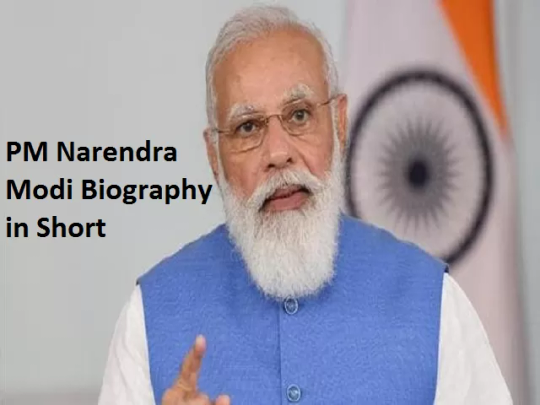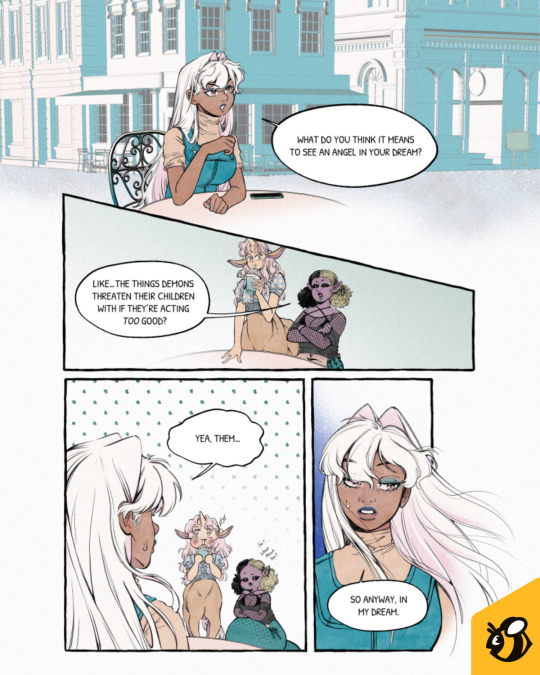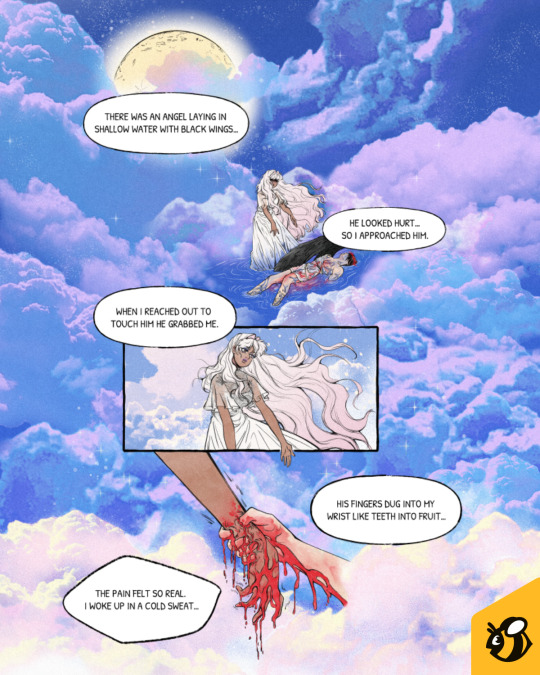#rss 2019
Explore tagged Tumblr posts
Text
Narendra Modi: Everything About The PM Of India
Narendra Modi, the current Prime Minister of India, is a leader who has left an indelible mark on the nation's political, economic, and social landscape. Known for his dynamic leadership, visionary policies, and charismatic personality, Modi has transformed India in numerous ways. This comprehensive blog delves into everything about Narendra Modi, offering insights into his early life, political journey, significant achievements, and influence on India and the world.

Early Life and Background
Narendra Damodardas Modi was born on September 17, 1950, in Vadnagar, a small town in northern Gujarat, India. Coming from a humble background, Modi's early life was marked by hardship and determination. He helped his father sell tea at the local railway station, an experience that shaped his understanding of grassroots issues and the common man's struggles.
Education and Early Interests
As per the UK Newspapers News Modi completed his schooling in Vadnagar and later pursued a degree in political science, earning an M.A. from Gujarat University in Ahmedabad. His early interest in serving the nation led him to join the Rashtriya Swayamsevak Sangh (RSS), a Hindu nationalist organization, in the early 1970s. Modi set up a unit of the RSS’s students’ wing, the Akhil Bharatiya Vidyarthi Parishad, in his area, where he honed his leadership skills and ideological beliefs.
Political Journey
Modi's political journey began with his active involvement in the RSS, which eventually led to his association with the Bharatiya Janata Party (BJP) in 1987. Within a year, he was made the general secretary of the Gujarat branch of the party. Modi played a pivotal role in strengthening the party’s presence in the state, contributing to the BJP's success in the 1995 state legislative assembly elections and the formation of the first-ever BJP-controlled government in India.
Chief Minister of Gujarat
In 2001, Narendra Modi was appointed the Chief Minister of Gujarat, following the poor response of the incumbent government to the Bhuj earthquake. He entered his first-ever electoral contest in a February 2002 by-election, winning a seat in the Gujarat state assembly.
Modi’s tenure as chief minister was marked by both achievements and controversies. His role during the 2002 communal riots in Gujarat drew international criticism, with allegations of condoning the violence or failing to act decisively to stop it. Despite these controversies, Modi’s political career in Gujarat was marked by repeated electoral successes in 2002, 2007, and 2012, establishing him as a formidable leader within the BJP.
Rise to National Leadership
Modi's success in Gujarat laid the foundation for his rise to national prominence. In June 2013, Modi was chosen as the leader of the BJP’s campaign for the 2014 elections to the Lok Sabha. His campaign focused on development, good governance, and anti-corruption, resonating with millions of Indians. In the 2014 elections, he led the BJP to a historic victory, securing a clear majority of seats in the Lok Sabha.
First Term as Prime Minister (2014-2019)
Modi was sworn in as Prime Minister on May 26, 2014. His first term was marked by several significant initiatives and reforms aimed at transforming India:
Goods and Services Tax (GST): Launched in 2017, GST is one of the most significant tax reforms in India's history, simplifying the indirect tax structure.
Demonetization: In 2016, Modi announced the demonetization of high-value currency notes to curb black money and counterfeit currency.
Swachh Bharat Abhiyan: Launched in 2014, this nationwide cleanliness campaign aimed to eliminate open defecation and improve solid waste management.
Digital India: An ambitious program to transform India into a digitally empowered society and knowledge economy.
Make in India: Aimed at making India a global manufacturing hub, this initiative encourages companies to manufacture their products in India.
Modi's foreign policy achievements included hosting Chinese President Xi Jinping and making a highly successful visit to New York City, where he met with U.S. President Barack Obama.
Second Term as Prime Minister (2019-2024)
The Modi-led BJP won a majority again in the 2019 general election. His second term saw continued efforts to promote Hindu culture and implement economic reforms:
Revocation of Jammu and Kashmir's Special Status: In October 2019, Modi's government revoked the special status of Jammu and Kashmir, bringing it under the direct control of the union government.
COVID-19 Pandemic Response: Modi took decisive action to combat the COVID-19 outbreak, implementing strict nationwide restrictions and promoting vaccine development and distribution.
Despite facing protests and criticism for some policies, such as agricultural reforms, Modi's leadership remained influential. The BJP faced setbacks in state elections in late 2018, but Modi's charisma and a security crisis in Jammu and Kashmir boosted his image ahead of the 2019 elections.
Third Term as Prime Minister (2024-Present)
In the 2024 Lok Sabha elections, the BJP won 240 seats, and the BJP-led National Democratic Alliance (NDA) secured 293 of the 543 seats, allowing Modi to become Prime Minister for a third consecutive term. Although the BJP did not secure a majority on its own, the NDA's coalition support ensured their continued governance.
Personal Life and Public Image
Narendra Modi is known for his disciplined lifestyle, early morning yoga sessions, and simple living. Despite his high-profile status, he remains deeply connected to his roots and continues to draw inspiration from his early life experiences.
Communication and Public Engagement
Modi's communication skills are unparalleled, often using social media and public addresses to connect with citizens. His monthly radio program, "Mann Ki Baat," has become a popular platform for sharing his thoughts and initiatives with the nation.
Conclusion
Narendra Modi's journey from a small-town boy to the Prime Minister of the world's largest democracy is a testament to his resilience, dedication, and visionary leadership. His impact on India's socio-economic fabric, governance, and international relations is profound and continues to shape the country's future.
Whether admired or criticized, Narendra Modi's influence on India and the global stage is undeniable. His story is not just about a political leader but also about the transformative power of determination and leadership.
Stay tuned to our blog for more updates and in-depth analyses of Narendra Modi's policies, initiatives, and their impact on India and the world.
#Narendra Modi#Prime Minister of India#BJP#Bharatiya Janata Party#Indian politics#Gujarat#Chief Minister#Lok Sabha#2014 elections#2019 elections#2024 elections#RSS#Rashtriya Swayamsevak Sangh#Gujarat Model#economic reforms#GST#Goods and Services Tax#demonetization#Swachh Bharat Abhiyan#Digital India#Make in India#foreign policy#Jammu and Kashmir#COVID-19 response#Narendra Modi achievements#Modi government#Indian economy#Modi's early life#political career#Hindu nationalism
0 notes
Text
KASHMIR MASTERLIST
Background
History of Kashmir from 250 BC to 1947 [to understand Kashmir's multi religious history and how we got to 1947]
Broad timeline of events from 1947 to the abrogation of Article 370 of the Indian Constitution in 2019 (BBC) [yes, BBC. hang on just this once]
Human Rights Watch report based on a visit to Indian controlled Kashmir in 1998 [has a summary, background, human rights abuses and recommendations]
Another concise summary of the issue
Sites to check out
Kashmir Action - news and readings
The Kashmiriyat - independent news site about ongoings in Kashmir
FreePressKashmir - same thing as previous
Kashmir Law and Justice Project - analysis of international law as it applies to Kashmir
Stand with Kashmir - awareness, run by diaspora Kashmiris (both Pandit and Muslim)
These two for more readings and resources on Kashmir: note that the petitions and donation links are from 2019 and also has explainers on the background (x) (x)
To read
Do You Remember Kunan Poshpora? - about women in the Kashmiri resistance movement and the 1991 mass rape of Kashmiri women in the twin villages of Kunan and Poshpora by Indian armed forces
Until My Freedom Has Come: The New Intifada in Kashmir - a compliation of writings about the lives of Kashmiris under Indian domination
Colonizing Kashmir: State Building under Indian Occupation - how Kashmir was made "integral" to the Indian state and examines state-building policies (excerpt)
Resisting Occupation in Kashmir - about the social and legal dimensions of India's occupation
On India's scapegoating of Kashmiri Pandits, both by Kashmiri Pandits (x) (x)
Of Gardens and Graves - translations of Kashmiri poems
Social media
kashiirkoor
museumofkashmir
kashmirpopart
posh_baahar
readingkashmir
standwithkashmir and their backup account standwithkashmir2 (main account is banned in India wonder why)
kashmirlawjustice
kashmirawareness
jammugenocide (awareness about the 1947 genocide abetted by Maharaja Hari Singh and the RSS)
To watch
Jashn-e-Azadi: How We Celebrate Freedom parts 1 and 2 - a documentary about the Kashmiri freedom struggle (filmed by a Kashmiri Pandit)
Paradise Lost - BBC documentary about how India and Pakistan's dispute over the valley has affected the people
Kashmir - Valley of Tears - the exhaustion with the conflict in the post nineties
In the Shade of Fallen Chinar - art as a form of Kashmiri resistance
Human rights violations (x) (x) (x) (x) (x)
Land theft and dispossession (x) (x) (x) (x) (x) (x)
A note: I know annoying Desis are going to see this and go "Oh but Kashmir is Pakistan's because-" and "Kashmir is an integral part of India because-". I must make my stance clear: Kashmir belongs to the Kashmiris, the natives, no matter what religion they belong to. Neither Pakistan nor India get to decide the matter of Kashmiri sovereignty. The reasons given by both parties as to why Kashmir should be a part of either nation are bullshit. The United Nations itself recognises Kashmir as a disputed region, so I will not entertain dumbfuckery. I highly encourage fellow Indians especially to take the time to go through and properly understand the violence the government enacts on Kashmiris. I've also included links to learn more about Kashmiri culture because really, what do the rest of us know about it? Culturally and linguistically Kashmir differs so much from the rest of India and Pakistan (also the amount of fetishization of Kashmiri women...yikes). This is not just a bilateral issue between these two nations over land, this actually affects the people of Kashmir. And if you're still here, thank you for reading
#this took a month of my life i'm not even kidding#ANYWAYS. hi. here you go.#kashmir#india#resources#important#history
1K notes
·
View notes
Text



The then Duke & Duchess of Cambridge attended the naming ceremony for The RSS Sir David Attenborough on September 26, 2019 in Birkenhead, England.
#IT'S BOATY MCBOATFACE ANNIVERSARY!!!#british royal family#prince of wales#princess of wales#duke of cambridge#duchess of cambridge#prince william#kate middleton#brf#royals#british royals
86 notes
·
View notes
Text







The Duke and Duchess of Cambridge during a naming ceremony for the polar research ship the RSS Sir David Attenborough on September 26, 2019 in Birkenhead, England.
#prince william#kate middleton#duchess of cambridge#duke of cambridge#sir david attenborough#british royal family#british royal fandom#royal family#2019#william and catherine
58 notes
·
View notes
Text
April 1, 2024: vocabulary, Safia Elhillo
vocabulary Safia Elhillo
fact:
the arabic word هواء (hawa) means wind thearabicwordهوى (hawa) means love
test: (multiple choice) abdelhalim said you left me holding wind in my hands or abdelhalim said you left me holding love in my hands
abdelhalim was left empty or abdelhalim was left full
fairouz said o wind, take me to my country or fairouz said o love, take me to my country
fairouz is looking for vehicle or fairouz is looking for fuel
oum kalthoum said where the wind stops her ships, we stop ours or oum kalthoum said where love stops her ships, we stop ours
oum kalthoum is stuck or oum kalthoum is home
--
It's here, it's here; happy National Poetry Month! In case you forgot: I'll be sharing a poem every day in April.
Want it as an email? Sign up here and it'll be whisked to your inbox by a team of digital carrier pigeons.
Or follow along on Tumblr, Twitter, or RSS. (Want to see it mirrored elsewhere? [Instagram, Substack, Bluesky, etc] Please let me know!)
==
This is, uh, the 20th year of this project??? See many years of past selections by browsing the archives or exploring the poems sent on today's date in:
2023: Reasons to Live Through the Apocalypse, Nikita Gill 2022: New Year, Kate Baer 2021: Instructions on Not Giving Up, Ada Limón 2020: Motto, Bertolt Brecht 2019: Separation, W.S. Merwin 2018: Good Bones, Maggie Smith 2017: Better Days, A.F. Moritz 2016: Jenny Kiss’d Me, Leigh Hunt 2015: The Night House, Billy Collins 2014: Tim Riggins Speaks of Waterfalls, Nico Alvarado 2013: Nan Hardwicke Turns Into a Hare, Wendy Pratt 2012: A Short History of the Apple, Dorianne Laux 2011: New York Poem, Terrance Hayes 2010: On Wanting to Tell [ ] about a Girl Eating Fish Eyes, Mary Szybist 2009: A Little Tooth, Thomas Lux 2008: The Sciences Sing a Lullabye, Albert Goldbarth 2007: Elegy of Fortinbras, Zbigniew Herbert 2006: When Leather is a Whip, by Martin Espada 2005: Parents, William Meredith
Thank you for being here!
54 notes
·
View notes
Text
Indian Prime Minister Narendra Modi inaugurated the Ram temple in Ayodhya in the key northern state of Uttar Pradesh in January in hopes it would earn him a massive victory in the national election that concluded in June. That didn’t happen—at least not to the extent that Modi, his Hindu-nationalist Bharatiya Janata Party (BJP), and their ideological fountainhead Rashtriya Swayamsevak Sangh (RSS) expected.
In what has widely been described as a shock result, the BJP won merely 240 seats in the 543-seat parliament, after setting a target of 400 seats. Modi has formed a government but only with support from other parties.
Like any election result, the outcome had multiple causes that will take time to fully sort out. But one thing is already clear: Modi failed in his long-running bid to homogenize India’s Hindus across castes and cultures and consolidate their vote for his political benefit.
In 2014, Modi came to power on the back of religious nationalism and security issues, and he continued that trend in 2019. This year, in the absence of any urgent security threat from regional rival Pakistan and rising concerns over unemployment, inflation, and authoritarianism, Modi banked on the RSS’s homogenization strategy.
The Ram temple was built on a site long disputed with Muslims, where a 16th-century mosque stood until December 1992, when a group of Hindu nationalists razed it to the ground allegedly on the BJP’s provocation. Experts said the BJP had envisaged the temple would instill pride in Hindus, feed their Muslim animosity, and bring them under the Hindu umbrella to choose Modi.
Even though, by and large, the Hindu community seemed to have been pleased with the inauguration of the temple, that didn’t translate into votes for Modi across the Hindu hierarchy. Instead, the results exposed the weaknesses of the homogenization exercise.
Hartosh Singh Bal, an Indian journalist and the executive editor of the Caravan, said there is “diversity in Hinduism” and the election results prove that it can’t be “papered over by directing attention and hatred outwards” toward Muslims. This election proves that “Hindus are not a monolith” and that “various segments of Hinduism have a successful chance of taking on the BJP,” he added in reference to tactical voting by lower castes in Uttar Pradesh against the BJP.
Karthick Ram Manoharan, a political scientist at the National Law School of India University in Bengaluru, said that in Tamil Nadu, a state in southern India with the second-biggest economy in the country, the BJP did not win a single seat out of a total of 39.
“Hindus are the absolute majority in Tamil Nadu, but they still mostly vote for the secular Dravidian parties,” Manoharan said in reference to local parties that have emerged out of social movements opposed to an upper-caste Hindu order that the BJP and RSS have been long accused of nurturing and propagating.
In March, just a month before voting began, I witnessed saffron-colored flags expressing support for Modi’s party jutting out from rooftops and windows in tightly packed homes in western Uttar Pradesh. Some people I spoke to said that BJP workers had decided to adorn the neighborhoods as they pleased, but underneath the flag-waving, a large-scale discontent was brewing over a lack of employment opportunities.
The upper-caste youth seemed confused, if not yet disenchanted, with Modi and in the absence of industry and strong local economies once again mourned the loss of government jobs to affirmative action. (The Indian Constitution reserves almost half of all state jobs for people from lower castes and others who confront a generational disadvantage and historical discrimination.)
Meanwhile, Dalits, who sit at the bottom of India’s Hindu hierarchy, in hamlets nearby who depend on the quota for their dignity and livelihood were quietly recalibrating their options. The mood was starkly different from 2014 and 2019 when I visited some of the Dalit-dominated parliamentary seats in Uttar Pradesh. Back then, Dalits I met were upbeat and decisively pro-Modi. They said they supported him since they believed that he might raise their stature in the Hindu hierarchy.
But 10 years later, they suspected the BJP was plotting to weaken the constitution, the only assurance of rights for marginalized communities in a country where upper-caste Hindus continue to hold social capital and economic power.
Recent comments by BJP leaders that if Modi won 400 seats, he would change the constitution spread anxiety among lower castes that the party intended to scrap the reservation system. The BJP repeatedly denied this, but the suspicion that it is first a party for upper-caste Hindus is deep-rooted among lower castes, and experts believe the comments were part of the BJP’s political strategy.
“They were testing the waters to see what would be the reaction,” said Sushil Kumar Pandey, an assistant professor of history at Babasaheb Bhimrao Ambedkar University in Lucknow and the author of Caste and Politics in Democracy.
“The opposition picked it up and campaigned on it, telling people a change in the constitution could mean losing your livelihood, your jobs,” Pandey added. “That worked at a time [when] people were also scared of privatization” and in government-run sectors.
For Dalits, it was about more than jobs. The Indian Constitution is nearly worshipped by the community and celebrated en masse on the birth anniversary of the Indian intellectual who wrote it. B.R. Ambedkar was no fan of Ram and advocated against the caste discrimination inherent in Hinduism all his life, even converting to Buddhism when he felt there was no escaping caste-based prejudice. While he couldn’t annihilate the caste system, he ensured that the constitution offered lower castes a quota in government jobs to gradually uplift them.
In his honor, and as an ode to the progressive document, Dalits sing songs in praise of the constitution and hail it as the upholder of their dignity in a society where they continue to be belittled. Any change to the text was unacceptable. “Their cultural identity is linked to this book,” said Ravish Kumar, a journalist and the host of a popular YouTube news show.
In the south, too, there was a fear of culturally being subsumed by a Hindi-speaking upper-caste elite. Indian federal units, or states, were defined in the 1950s on the basis of language, and to this day south Indians identify themselves on the basis of the language they speak. The Ram temple had no resonance in the southern states, particularly in electorally significant Tamil Nadu, with the highest number of seats regionally. Tamils were wary that the RSS’s homogenization agenda would drown out their cultural ethos and impose a secondary status on the Tamil language.
Manoharan, the political scientist, said that in Tamil Nadu, it was “not so much religious but fear of cultural homogeneity” and “a language policy which will give importance to Hindi speakers over Tamil speakers and upper-caste Tamils over other backward castes.”
In a state where “88 percent people come from so-called lower castes” and “69 percent have jobs under affirmative action through a special act,” people were also extremely worried that the BJP may “water down” the employment quota promised in the constitution, Manoharan added.
The southern Indian states have a longer history of resistance to upper-caste domination, a higher literacy rate, better economies, and a tradition of secular politics. While the BJP maintained its tally of 29 seats from the last election, it is being seen as a poor result considering the inroads the RSS has made in the south.
For instance, in the southwestern state of Kerala, the RSS has more than 5,000 shakhas, or branches, second in number only to Uttar Pradesh, India’s most populous state—yet “despite the fact that the RSS has thousands of training grounds in Kerala, they are unable to get influence,” said K.M. Sajad Ibrahim, a professor of political science at University of Kerala. “That’s because while religion is important, communal harmony is more important to people here. BJP tries to create tensions, and that doesn’t work here.”
The BJP managed to gain one seat for the first time in Kerala, but that isn’t being attributed to its ideological success or expansion of homogenization project but to the winning candidate’s personal appeal. Suresh Gopi, the winning candidate, is a popular movie star.
In many states in the Hindi belt and even in the south, the BJP did well. The upper castes and urban voters are standing firmly behind Modi. Kumar, the journalist, said it would be foolhardy to dismiss Modi—and the bigger Hindutva, or Hindu nationalist, forces backing him—just yet. He said Hindutva hasn’t lost and only faced a setback. “The BJP was trying to dominate caste politics with Hindutva,” he said, “but the election result shows that dominance has cracked.” However, he added, “it has only cracked—the ideology still has wide-scale acceptance.”
Everyone else Foreign Policy spoke to concurred but added that Hindus are far too diverse to be homogenized. Manoharan said the results exposed the weakness of the homogenization agenda and its faulty premise. “Hindutva’s aim for homogeneity is confounded precisely by a structural feature of the religion-culture it seeks to defend—caste,” he said.
22 notes
·
View notes
Text
Introducing Caramel Corn by Potchimew
July 2023
All humans have gone extinct, except for Sarah. As the only remaining human in a world of mythical creatures and monsters, Sarah seeks a quiet life studying art restoration at university. All is well in her weird life until her guardian angel appears.
Now Sarah finds herself butting heads with a black winged angel named Jacob who appears in her dreams and in her class. He says he is her guardian angel, but Sarah wants nothing to do with him. An angel with black wings can’t be anything other than an ill omen, afterall…
Caramel Corn is the latest webcomic by artist Potchimew, which debuted with Hiveworks this summer. Fans of Potchimew may recognize her previous comics in the fantasy genre, Vampire Girlfriends and Memories of Amisi. Potchimew graduated from Savannah College of Art and Design in 2019, which is when she began publishing Vampire Girlfriends. Since then, she mentored under Leslie Hung and Sloane Leong to develop Memories of Amisi.


Caramel Corn takes Potchimew’s artistic style in a shoujo direction, with the artist citing Maid Sama as a source of inspiration when first developing the characters as a teen. “The story was originally inspired by [Maid Sama] but I moved past those ideas and developed it into something completely different!” says Potchimew.
While Sarah is the only human in her world, she isn’t alone. She is supported by her friends and classmates, Cherimoya, a unitaur, and Dorothea, a naga. Caramel Corn highlights Potchimew’s creature design skills, with more monster girls, boys, and others to be added to the roster as the series progresses.


For fans of guardian angels, romance, and shoujo, add Caramel Corn to your RSS feed and follow Potchimew (@potchimewart) for more updates.
85 notes
·
View notes
Text


The Duchess of Cambridge attended the naming ceremony for The RSS Sir David Attenborough in Birkenhead || 26 SEPTEMBER 2019
#princess of wales#the princess of wales#princess catherine#cat cambridge#princess kate#26092019#british royal family#british royals#kate middleton#royalty#catherine middleton#royal#royals#duchess of cambridge#brf#british royalty#my edit#royaltyedit#royalty edit#RSSDavidAttenboroughNamingCeremony19
27 notes
·
View notes
Text
It's time for Beginnings, the podcast where writer and performer Andy Beckerman talks to the comedians, writers, filmmakers and musicians he admires about their earliest creative experiences and the numerous ways in which a creative life can unfold.

On today's episode, I talk to illustrator and comics creator Brian Blomerth. Brian grew up in Newport News, Virginia, and in college started to move towards making art for a living. Some of his early work was for Vice, as well as making tour posters for bands like Phish or album artwork for musicians like Ryley Walker. Since 2019, he's been working on a series of books about 20th century psychonauts starting with Bicycle Day, about the discovery of LSD, and the follow-up, Mycelium Wassonii, about the scientist couple responsible for popularizing the use of psychedelic mushrooms in the US. His most recent book, Lilly Wave, about the life of scientist and psychedelic dolphin tormentor John C. Lilly, came out in October, and it's a delight!
I'm on Twitter here and you can get the show with:
Apple Podcasts
Spotify
Amazon Podcasts
YouTube Podcasts
Permalink RSS Feed Facebook
2 notes
·
View notes
Text
This day in history

I'm on tour with my new novel The Bezzle! Catch me TONIGHT in LA with Adam Conover at Vroman's, then on MONDAY in Seattle with Neal Stephenson, then Portland, Phoenix and more!

#20yrsago Education czar calls teachers’ union a “terrorist organization” https://www.cnn.com/2004/EDUCATION/02/24/paige.terrorist.nea/index.html
#20yrsago Garry Trudeau puts $10K up for anyone who will confirm Bush’s Air Guard claims https://web.archive.org/web/20040401103812/http://www.doonesbury.com/strip/faqs/index.html
#20yrsago Nelson’s Grey Tuesday RSS https://web.archive.org/web/20040503084858/http://www.nelson.monkey.org/~nelson/weblog/culture/blogs/greyDay.html
#15yrsago Conan copyright trolls censor fan-readings of public domain stories https://www.sffaudio.com/conan-and-new-zealands-new-copyright-law-vs-broken-sea/
#15yrsago Unimaginably gigantic cell-phone market in Shenzhen https://www.bunniestudios.com/blog/?p=283
#15yrsago John Hodgman explains what’s wrong with “Meh” https://waxy.org/2009/02/john_hodgman_on_meh/
#15yrsago @brucesterling's The Caryatids, my pick for best book of 2009, a novel of clear-eyed hope for the future https://memex.craphound.com/2009/02/24/bruce-sterlings-the-caryatids-my-pick-for-best-book-of-2009-a-novel-of-clear-eyed-hope-for-the-future/
#10yrsago Mozilla’s $25 Firefox smartphone: a free/open device for billions of new netizens https://www.cnet.com/tech/mobile/with-firefox-os-mozilla-begins-the-25-smartphone-push/
#10yrsago Whistleblower: NSA secretly continues Merkel surveillance by bugging other German officials https://arstechnica.com/tech-policy/2014/02/nsa-moves-from-bugging-german-chancellor-to-bugging-german-ministers/
#10yrsago Text of Little Brother on an art-litho, tee, or tote https://www.litographs.com/products/brother
#10yrsago Takei to Arizona lawmakers: we will boycott Arizona if it passes its anti-gay Jim Crow law https://www.cnbc.com/2014/02/25/razing-arizonageorge-takeicommentary.html
#10yrsago How Youtube’s automated copyright system lets big music screw indie creators https://torrentfreak.com/why-youtubes-automated-copyright-takedown-system-hurts-artists-140223/
#5yrsago Deposition of opioid profiteer Richard Sackler reveals his bizarre defense: definitional games and insistence that words mean their opposite https://arstechnica.com/science/2019/02/sackler-behind-oxycontin-fraud-offered-twisted-mind-boggling-defense/
#5yrsago Alexandria Ocasio-Cortez will pay every staffer a living wage, ending the longstanding practice of Congressional staffers taking second jobs https://rollcall.com/2019/02/22/alexandria-ocasio-cortezs-call-for-a-living-wage-starts-in-her-office/
#5yrsago As expected, the EU has advanced the catastrophic Copyright Directive without fixing its terrible defects https://arstechnica.com/tech-policy/2019/02/european-governments-approve-controversial-new-copyright-law/
#1yrago This is your brain on fraud apologetics https://pluralistic.net/2023/02/24/passive-income/#swiss-cheese-security
7 notes
·
View notes
Text
Thank you all
Thank you @tankthomp for your kind last Friday message. Since you did it, a lot of people visited my account. I feel a warmth that is very unusual to me on this website. The last time I have an account here (from March 2015 to December 2019), it took years before I stopped feeling like a raindrop falling in the middle of an ocean. My dear friends Gene @ wraith4aeon and Tim @roughrider13 helped a lot and we still discuss on ig. Honestly, you think that Tumblr was better before, but in terms of warmth you're a lot better, all of you.
Thanks to all my followers, rebloggers, visitors, and especially thanks to the people who discussed with me (don't worry, I have a lot of friends irl😂). Being nuked 4 years ago has been a trauma, cuz then I spent too much time on Tumblr, scheduling new material every week-end, having rss links in order to cover a lot of publications. I don't intend to get back to this craziness, and searching for the posts I published then is my main task.
And finally, thanks, David, for our discussions since I'm back here (and your patience when I'm mute for a long time because I work too much).
10 notes
·
View notes
Note
hi!! I just found out about tumblr having an anti-hindutva tag and I shall be making myself comfortable here! just found your account like a few mins ago and if it’s ok, i wanted to ask some questions (you absolutely don't have to answer if you don't like any of them or even if you don't feel like answering :) ) (edit added, this ask got way too long lol. feel free to skip it! also, you're kinda super cool lol)
I'm Indian, currently outside India, and I've only started learning about the shitshow going on in my 'mahaan bharat' since November (specifically since finding out that we are Irahell's biggest weapons buyer). and the more I find out the more shocked and heartbroken I feel...
like this week i learnt about the immigration ban in US against Chinese women that existed a few decades ago, and the ongoing discrimination against Palestinians in Canadian immigration services... and both the times I was so disgusted and there was this subconscious feeling that India should never be like that. but then an hour ago I learnt about the 2019 CAA and wtf!?
another example being that currently we're seeing israhell's continuous bombing of heritage sites of great cultural and religious significance, that also held so many centuries old records and histories... and learning about how they are bulldozing over graveyards and exhuming them...
and then today I learnt about Akhonji Masjid and Gyanvapi Masjid and of course have known about Babri Masjid for a few weeks now...
and only learnt about Kashmir in november...
and I feel like my whole worldview has shifted from a previous foundation, except it's so drastic and I still don't have a new foundation...
I try to talk to members of my family about this but they're the Indian equivalent of the U.S. liberals, and every single time they'll tell me "whatever news you're hearing is propaganda written by Pakistan/China/U.S./Russia. trust me I have Muslim friends and they're very happy. you just don't know the situation cause you're not in India" and like it sometimes make me think maybe I'm the one losing my mind...
I even read some places about free Punjab and that confused the fuck out of me cause I'm Punjabi (who does not live in Punjab) and I don't have any clue what it's about... I asked my fam, but they just gave me a weird look and told me to stay away from anyone that mentions Khalistan😭💀
(this got way longer than I expected, so sorry) but would you have any recommendations for any blogs/articles/books/podcast resources or any personal recommendations for news publications that are reliable (finding God would probably be easier than finding such publications lmao) like I thought Al-Jazeera is super credible, but then read that they're super credible when it comes to Palestine, not when it's global...
like where tf do I go from here lol
hello nonnie! some news sites I'd recommend are newslaundry (they have a youtube channel too), the wire, scroll.in and newsclick. maktoob media is mostly focused on minority rights in india. hindutvawatch.org is about hindu fascist violence committed against minorities. I still think you should stick to al-jazeera at least when it comes to palestine (they have journalists on the ground there, shireen abu akleh was one of them)
this is a good introduction to anyone wanting to learn about hindutva, this and this are about how india is becoming increasingly unsafe for minorites and is undergoing a democratic backsliding. this and this are about the rss link to nazism
hostile homelands by azad essa is about india's historical relationship with israel and the parallels between hindutva and zionism. the brown history podcast has an episode about how india went from the first non-arab state to recognise palestine to its largest buyer of weapons, featuring azad essa (x). you can also read colonising kashmir by hafsa kanjwal about how india came to militarily occupy kashmir. if you want to learn more about kashmir there are the blogs kashmiraction.org and standwithkashmir (which is um. blocked in india. i wonder why)
i have not read khaki shorts and saffron flags yet but this one is about the history of the rss. i also suggest watching the documentaries ram ke naam and jai bhim, comrade which are about the hindutva mobilisation in the 1980s
for me free punjab is very ?? the indian government is beyond evil as they continue to spy on sikhs abroad (and ofc, the 1984 sikh genocide) but i don't think liberation will be achieved through a religious ethnostate. any state formed on the basis of religion will inevitably turn out to be a disaster. i do encourage you to read lost in history: 1984 reconstructed by gunisha kaur, which is about the human rights violations committed against sikhs during this time and why operation bluestar was in fact not about freeing sri harmandir sahib from "terrorists." all i can say is to stand with sikhs unapologetically as our shitass government continues to commit more and more human rights violations against them
in general, i'd tell you to observe the language used by different news outlets and question it (eg. american news referring to israelis below the age of 18 as children but the same courtesy is not extended to palestinians) and check their sources. if it's from whatsapp university don't even bother
#i really really hoped this poorly drafted response helps#feel free to ask more qs if you have any!#also omg fellow punjabi HIIIII I'M PUNJABI FROM MY MOM'S SIDE#asks#anon#hindutva
87 notes
·
View notes
Text

The then Duke & Duchess of Cambridge attended the naming ceremony for The RSS Sir David Attenborough on September 26, 2019 in Birkenhead, England.
#IT'S BOATY MCBOATFACE ANNIVERSARY!!!#british royal family#prince of wales#princess of wales#duke of cambridge#duchess of cambridge#prince william#kate middleton#brf#royals#british royals
35 notes
·
View notes
Text
Who is your birthday oshi? ~Week of June 11~

It's that time of the week again.
Full birthdays & anniversaries list under the cut.
Birthdays & Anniversaries ~Week of June 11~








The following members, ex-members, and single releases have birthdays, anniversaries, and a release (!) this week.
June 11
High-King - C\C (Cinderella\Complex) (2008)
June 12
Goto Yuki (ex-THE Possible / Ciao Bella Cinquetti; 30)
Murota Mizuki (ex-ANGERME; 25)
Fujimoto Miki - Sotto Kuchizukete Gyutto Dakishimete (2002)
Juice=Juice - Samidare Bijo ga Samidareru (2013; general release)
Morning Musume '19 - Jinsei Blues / Seishun Night (2019)
June 13
Matsuura Aya - Tropica~l Koishite~ru (2001)
THE Possible featuring Okada Robin Shoko and Goto Yuki - Kingyo Sukui to Hanabi Taikai (2007)
THE Possible featuring Hashimoto Aina and Akiyama Yurika - Natsu no Tropical Musume. (2007)
Morning Musume '18 - Are you Happy? / A gonna (2018)
June 14
Sekine Azusa (Up Up Girls (Kakko Kari); 27)
Kobushi Factory - Shalala! Yareru Hazu sa / Ee ja nai ka Ninja nai ka (2017)
ANGERME - Ai no Kedamono / Dousousei (2023)
June 15
Arihara Kanna (ex-C-ute; 30)
Kamimura Rena (Hello Pro Kenshuusei Unit '23; 14)
Morning Musume - Only you (2011)
Noto Arisa - Oyasumiboshi (2016)
June 16
Tashiro Sumire (OCHA NORMA; 18)
Tanpopo - Tanpopo (Single Version) (1999)
Lilpri - Little♡Princess☆Pri! (2010)
June 17
Tsuji Nozomi (ex-Morning Musume; 36)
Satoda Mai with Gouda Kazoku - Don't leave me (2009)
Happy birthday/anniversary/release week!
Subscribe to the main blog | Social Media + RSS Links | M3 Grand Prix page
#Goto Yuki#Murota Mizuki#Sekine Azusa#Arihara Kanna#Kamimura Rena#Tashiro Sumire#Tsuji Nozomi#THE Possible#Ciao Bella Cinquetti#ANGERME#Up Up Girls (Kakko Kari)#C-ute#Hello Pro Kenshuusei Unit '23#OCHA NORMA#Morning Musume#High-King#Fujimoto Miki#Juice=Juice#Matsuura Aya#Kobushi Factory#Noto Arisa#Tanpopo#Lilpri#Satoda Mai#Birthday Oshi Poll
17 notes
·
View notes
Text
The Sun and the DM: Harold mocked by England's rugby coach and players over his hypocritical stance on climate change. No-nonsense former boss Eddie Jones - as he watched a training session - and said: "How's climate change going mate? how was Elton John's jet?" by u/Von_und_zu_
The Sun and the DM: Harold mocked by England's rugby coach and players over his hypocritical stance on climate change. No-nonsense former boss Eddie Jones - as he watched a training session - and said: "How's climate change going mate? how was Elton John's jet?" Harold the Hypocrite. He deserves all the mocking, in my opinion.The Sun article, in relevant part:Aussie Jones - who headed England from 2015 to 2022 - ridiculed the Duke of Sussex after he attended a session as part of his former role as England's rugby patron and was allowed to speak to players.Jones was referring to a Sun story which revealed Harry and Meghan had taken a private jet to Nice in August 2019.***The revelation was made on the Speaking on the For the Love of Rugby podcast by England ace Ben Youngs.Talking to teammate Dan Cole, he said: "You know Prince Harry used to come in a little bit and watch us train?"I don't know what we call him now. All of his titles have gone haven't they?"There was one time he was standing there and was saying something to the group and then Eddie was like, 'how's climate change going mate? how was Elton John's jet?"That was quite good."The pair both burst out laughing, before Ben - England's most capped player ever with 127 caps - said: "Just thrown Eddie under the bus there. And Prince Harry."Love that they think his titles are gone.Also love that they are rugby players who Harold probably thought were his pals. The Duke of Sussex was also attending the session, after which he was allowed to talk to the players, as part of his former role as rugby patron for England. And really love that the late Queen gave the Princess of Wales the patronages of England's Rugby Football Union and Rugby Football League .The DM is reporting on the Sun article.Sun: https://ift.tt/02WwjAc article:https://preview.redd.it/lya78ryitymc1.png?width=864&format=png&auto=webp&s=217519a4ffe145c535a351a49b864b82035c3025https://archive.ph/hqHbBhttps://www.dailymail.co.uk/femail/article-13169101/Prince-Harry-mocked-use-private-jets-rugby-coach-Eddie-Jones-despite-royals-eco-credentials.html?ns_mchannel=rss&ns_campaign=1490&ito=social-twitter_mailonline post link: https://ift.tt/VdrsAuH author: Von_und_zu_ submitted: March 07, 2024 at 08:38PM via SaintMeghanMarkle on Reddit Disclaimer: All views + opinions expressed by the author of this post, as well as any comments or reblogs, are solely the author's own; they do not necessarily reflect the views of the administrator of this Tumblr blog. For entertainment only.
#SaintMeghanMarkle#harry and meghan#meghan markle#prince harry#fucking grifters#Worldwide Privacy Tour#Instagram loving bitch wife#Backgrid#voetsek meghan#walmart wallis#markled#archewell#archewell foundation#megxit#duke and duchess of sussex#duke of sussex#duchess of sussex#doria ragland#rent a royal#clevr#clevr blends#lemonada media#archetypes#archetypes with meghan#invictus#invictus games#Sussex#WAAAGH#Von_und_zu_
4 notes
·
View notes
Text
April 1, 2023: Reasons to Live Through the Apocalypse, Nikita Gill
Reasons to Live Through the Apocalypse Nikita Gill Sunrises. People you have still to meet and laugh with. Songs about love, peace, anger, and revolution. Walks in the woods. The smile you exchange with a stranger when you experience beauty accidentally together. Butterflies. Seeing your grandpar- ents again. the moon in all her forms, whether half or full. Dogs. Birthdays and half-birthdays. That feeling of floating in love. Watching birds eat from bird feeders. The waves of happiness that follow the end of sadness. Brown eyes. Watching a boat cross an empty sea. Sunsets. Dipping your feet in the river. Balconies. Cake. The wind in your face when you roll the car window down an open highway. Falling asleep to the sound of a steady heartbeat. Warm cups of tea on cold days. Hugs. Night skies. Art museums. Books filled with everything you do not yet know. Long conversations. Long-lost friends. Poetry.
==
‘bout that time, eh, chaps?! Happy National Poetry Month once again.
As a reminder, you’ve signed up to receive a poem every day in April. Anyone can do the same right here. Or follow along on Twitter, Tumblr, or RSS. Hooray, poetry.
==
Many(!!) years of Aprils predate this one. You can browse the archives by jumping to the poem sent on today’s date in:
2022: New Year, Kate Baer 2021: Instructions on Not Giving Up, Ada Limón 2020: Motto, Bertolt Brecht 2019: Separation, W.S. Merwin 2018: Good Bones, Maggie Smith 2017: Better Days, A.F. Moritz 2016: Jenny Kiss’d Me, Leigh Hunt 2015: The Night House, Billy Collins 2014: Tim Riggins Speaks of Waterfalls, Nico Alvarado 2013: Nan Hardwicke Turns Into a Hare, Wendy Pratt 2012: A Short History of the Apple, Dorianne Laux 2011: New York Poem, Terrance Hayes 2010: On Wanting to Tell [ ] about a Girl Eating Fish Eyes, Mary Szybist 2009: A Little Tooth, Thomas Lux 2008: The Sciences Sing a Lullabye, Albert Goldbarth 2007: Elegy of Fortinbras, Zbigniew Herbert 2006: When Leather is a Whip, by Martin Espada 2005: Parents, William Meredith
(Insider secret: you can usually find my top tier favs by looking at what was sent on April 1 and April 30.)
Thanks for being here, friends.
60 notes
·
View notes